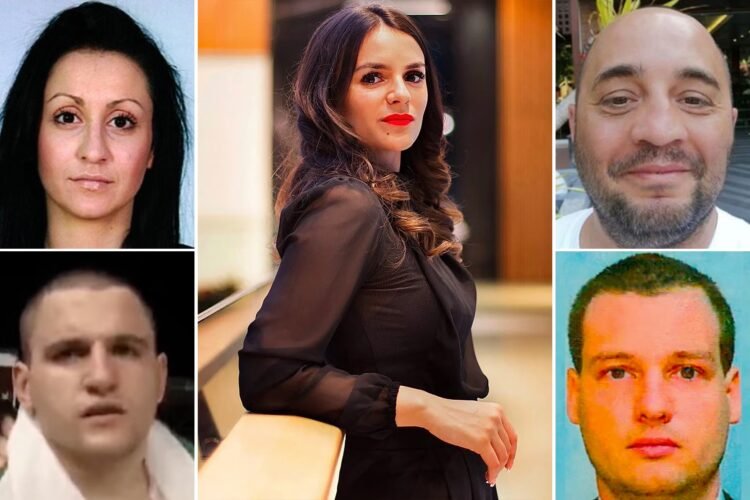Three Bulgarian nationals based in London have been convicted for espionage on behalf of Russia in what is described as one of the largest and most complex foreign intelligence operations on UK soil in recent years.
Katrin Ivanova, 33, Vanya Gaberova, 30, and Tihomir Ivanchev, 39, were part of a group of Bulgarians involved in espionage activities between 2020 and 2023. The cell conducted extensive surveillance on Russian targets, including investigative journalists and a US military base in Germany, operating primarily from the UK and moving across Europe.
Metropolitan Police counter-terrorism chief Commander Dominic Murphy noted that the tools they used were “the kind you would expect to see in a spy novel.” Police were able to recover thousands of messages exchanged by the cell’s leaders, detailing their plans to kidnap, kill, or entrap their targets using “honeytraps.”
The three were convicted of conspiracy to spy, and Ivanova was also found guilty of possessing multiple false identity documents. Orlin Roussev, 47, from Great Yarmouth, and Biser Dzhambazov, 43, from London, had previously pleaded guilty to conspiracy to spy, and Ivan Stoyanov, 34, who had already admitted to spying, is now publicly identified as part of the group.
Among the key targets were investigative journalists Christo Grozev and Roman Dobrokhotov, known for their work exposing Russia’s role in nerve agent attacks on opposition leader Alexei Navalny in 2020 and on former spy Sergei Skripal in 2018.
During the trial, prosecutor Alison Morgan KC described the cell as using sophisticated surveillance tactics, false identities, and advanced technology to gather information. Roussev’s espionage operations were centered in a guesthouse in Great Yarmouth, where a “treasure trove” of spy equipment, including hidden cameras and drones, was discovered.
The police investigation resulted in the seizure of 221 mobile phones, 495 SIM cards, 11 drones, and devices capable of extracting data from phones and eavesdropping on Wi-Fi activity. Commander Murphy called the operation “extremely sophisticated” and noted its potential threat to national security and individuals.
Roussev ran the cell under the direction of Jan Marsalek, an Austrian national wanted in Germany for alleged fraud linked to Wirecard. Marsalek was described as an “intermediary for the Russian intelligence services.”
The cell’s members held various jobs: Gaberova worked as a beautician, Ivanchev as a painter, Roussev had worked in technology, Stoyanov as a medical courier, Dzhambazov worked in healthcare, and Ivanova and Dzhambazov also ran a community organization offering courses on “British values.”
While the trio admitted to surveillance activities, they denied knowing it was for Russia. Ivanchev did not testify during the trial but indicated in police interviews that he had spoken with MI5 prior to his arrest.
The prosecution highlighted six major espionage operations, including:
- Operation 1: Targeting journalist Christo Grozev with plans to follow him across Europe, rob him, or even kill him.
- Operation 2: Targeting journalist Roman Dobrokhotov with plans to kidnap and smuggle him out of the UK.
- Operation 3: Targeting political dissident Bergey Ryskaliyev, a former Kazakhstan politician.
- Operation 4: Planning a fake protest outside the Kazakh embassy in London to deceive authorities into believing they had valuable intelligence.
- Operation 5: Surveillance of Patch Barracks, a US military base in Germany, to gather intelligence on Ukrainian forces.
- Operation 6: Targeting Kirill Kachur, a former Russian official, and “foreign agent.”
The conviction of the six defendants underscores the significant threat posed by foreign intelligence operations on UK soil, with sophisticated methods and ambitious objectives.

 English
English



























































